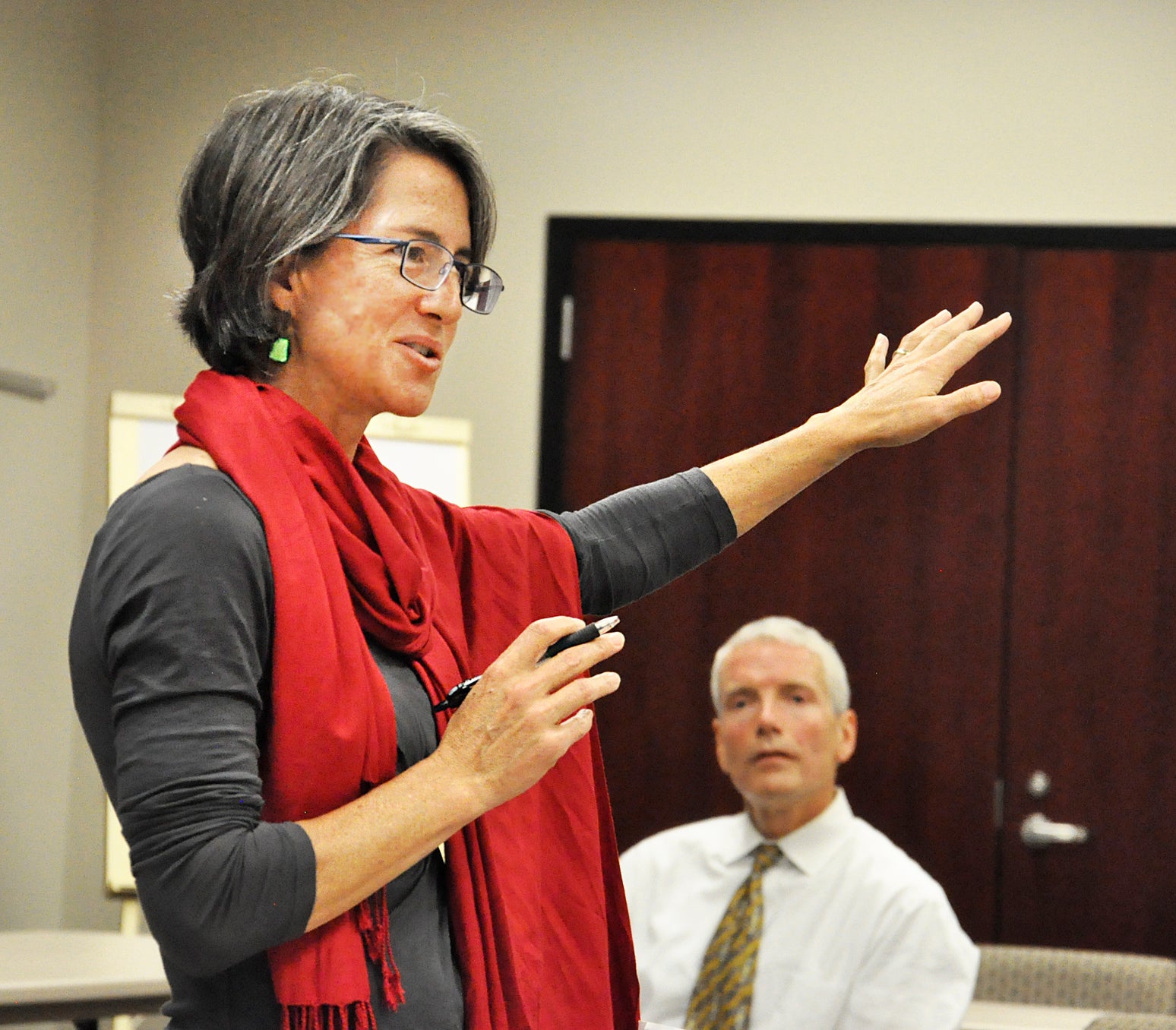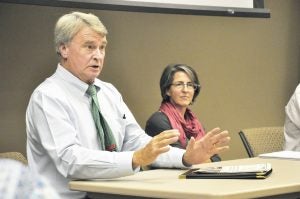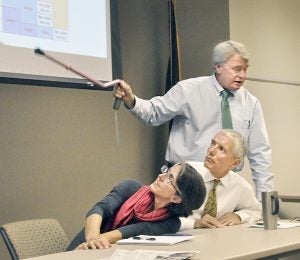What’s the ‘downside’ of preparing for global warming?
Published 1:02 pm Thursday, October 12, 2017

- Lisa Abbott with Kentuckians for the Commonwealth addresses the public meeting of The Women's Network of Boyle County Tuesday night concerning global warming and the organization's policies.
Women’s group panelists say education, understanding is key
Following a panel discussion and a debate concerning global warming, Jane Preston of Danville said, “What’s the downside of anticipating the worse and preparing for it now?”
“What’s the downside of planning on cleaner energy if it creates more jobs and improves our health,” she asked.
Education is the key to understanding and solving worldwide environmental problems, and curing dangerous health issues facing humans caused by our own pollution — that was the underlying message brought by three local experts to The Women’s Network of Boyle County public meeting Tuesday evening. The discussion brought in roughly 35 or so people, some who participated and others who observed.
Panelists were Preston Miles, a chemistry professor, David Anderson, an economics professor, both from Centre College, and Lisa Abbott with Kentuckians for the Commonwealth, a grassroots organization to help impact issues including, “coal and water, new energy and transition, economic justice and voting rights,” according to its website. They discussed the scientific, economic and policy aspects of climate change.
Margaret Gardiner, the club member who organized the panel discussion, said the group wanted to learn about the impact of global warming and how we can locally improve the environment. “We’ve heard about it (global warming) in the background all the time and we can’t forget about its long-term impact,” even in our own communities, she said.

Preston Miles, a chemistry professor at Centre Colleges makes a point about earth’s temperatures and increases in atmospheric gases.
Following an explanation of global temperature changes over thousands of years, Miles showed slides comparing increases in atmospheric gases including carbon dioxide, nitrous oxide and methane, as well as radiation intensity, and how they affect what is called the greenhouse effect on earth.
Anderson suggested that economics is “a useful social science with which to approach problems with the environment.” He said incentives matter and are necessary to successfully urge individuals and businesses to make environmental changes for cleaner air and water.
He said education is the key when trying to convince people to work for changes to reduce global warming. “Even education in general,” can make a difference.
“Science is the appropriate basis to make changes … Anything that you do for education is a step in the right direction,” he said.
Abbott said local conversations, like the one they were having Tuesday night, is very important to all Kentucky communities.
“That’s the right thing to do,” Abbott said.
Choices need to be made on the state level that will make using cleaner energy, such as solar power, easier for individuals as well as for larger power consumers, such as for big box stores and industries. However, there are still a lot of road blocks to overcome she said.
Abbott said not only would changing to more energy efficient buildings and homes help reduce greenhouse gases, it would also be an investment in our communities by providing more jobs in areas such as HVAC.
Mary Conley, Boyle County treasurer who also attended the meeting, said she felt Boyle County, as well as Danville residents, “exceed in doing the right thing and conserving energy.”
She told the group how the courthouse has recently spent a lot of money to achieve that goal in its building. She also said she was proud of Danville and the energy efficient lighting at Millennium Park and the new low-flow toilets and showers that have been installed in the Boyle County Detention Center, just to mention a few improvements.
Abbott said, “Where do we go from here?… We have to grapple with these questions, we have to deal with a clean power plan… How do we make good things happen where we are?
“Given a really dreadful political situation at the state level, how do we continue to move our colleges and our communities forward and organize our utilities to move in this direction?”
Answering her own questions she said, “Because of the politics of the moment, we need a mosaic of small scale strategies across Kentucky that over time will shift the people’s notion of what’s possible… And we need to elect the right candidates.”
After the meeting, Gardiner said it is important to educate and inform our community about global warming. “Hopefully it starts with these people right here,” she said.
For more information about Kentuckians for the Commonwealth visit www.kftc.org. For more information concerning global warming go to United Nations Intergovernmental Panel on Climate Change (IPCC) website: ipcc.ch/

Preston Miles, a chemistry professor at Centre Colleges makes a point about earth’s temperatures and increases in atmospheric gases as Lisa Abbott and David Anderson watch.






